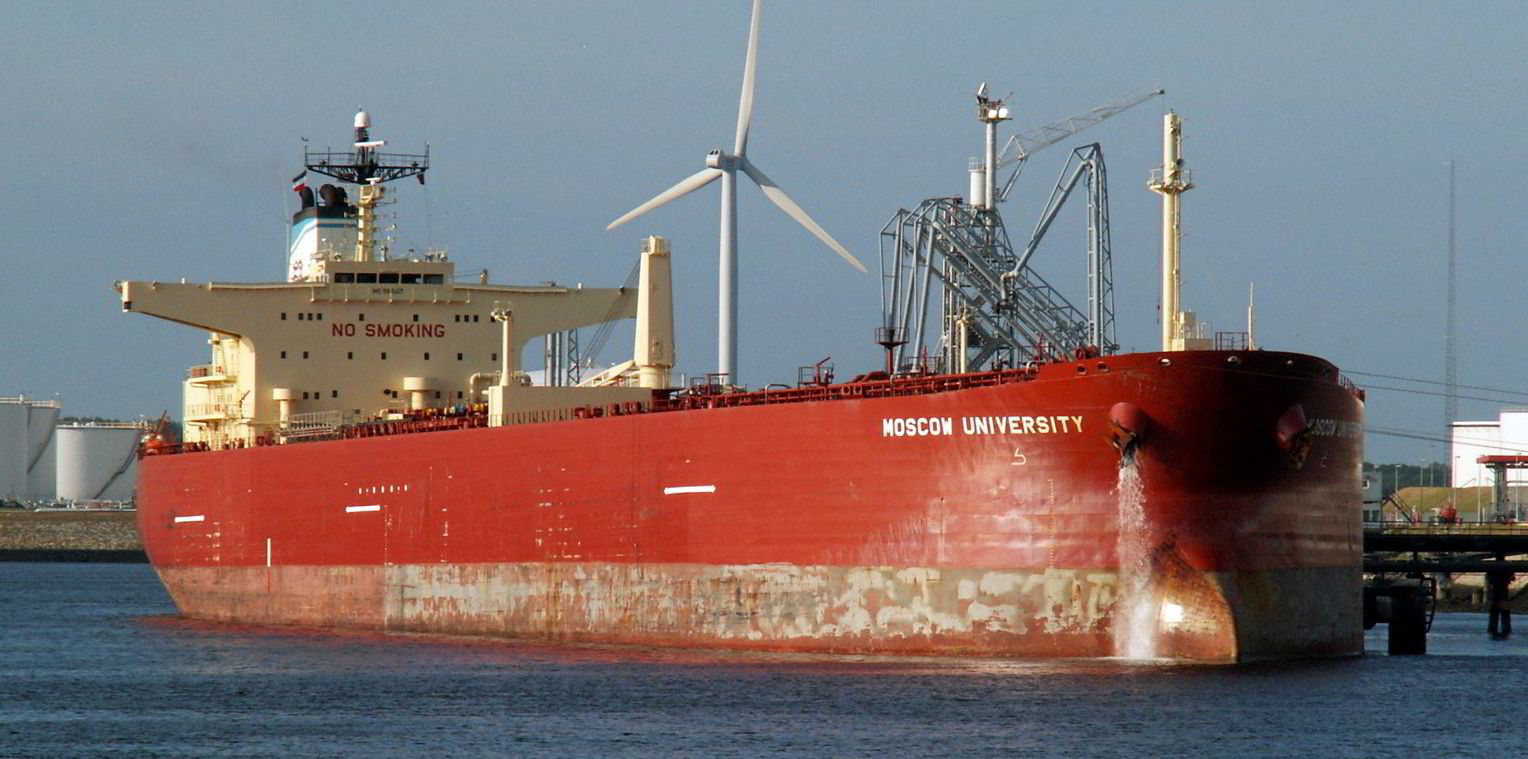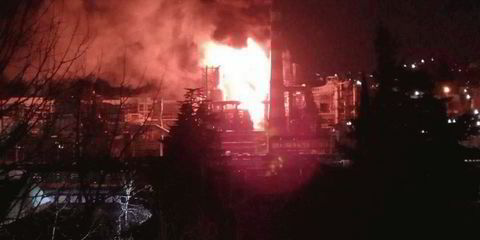A senior UK sanctions official said the oil price cap sanctions coalition is aiming to push more shadow fleet tankers back into the hands of western maritime service providers to increase compliance.
Olga Dimitrescu, head of engagement for the oil price cap at the Office of Financial Sanctions Implementation, said the coalition is beefing up its sanctions programme in response to industry consultation and to make the action more effective.
After upgrading the Russian oil export attestation process on 19 February she said it plans to “up the ante on enforcement and taking action against actors involved in deceptive practices”.
Dimitrescu’s comments were made to Mike Salthouse, director of external affairs at the NorthStandard P&I club, in an interview in his Future Thinking series of podcasts available on the insurer’s website.
Dimitrescu said data showed the price cap sanctions are working and Russia’s oil revenue is down. Maintaining the dark fleet to carry its oil is also costing Russia $2.25bn annually and further draining its resources.
She said the upcoming clampdown would include direct enforcement and increasing awareness of deceptive practices through alerts.
The aim is to drive more dark fleet ships back to western service providers who will require compliance with the price cap.
“I’d say by operating on these two levels we are making it harder for Russia to use its shadow fleet which would in turn force more volume back to the G7 fleet where service providers are more compliant with the cap,” she told Salthouse.
“It is in our interest this happens. One of the reasons why the price cap is so effective is we have a prevalence of services from G7 providers, it is difficult to make trades or gain significant market share without using G7 services at all,” Dimitrescu said.
“This is why we are talking to industry. We never wanted to cut off G7 maritime services from insuring or being involved in the global trade of Russian oil cargoes. We need the price cap to remain workable and this is why we are keen to make sure these volumes are forced back into our jurisdictions.”
Among the upcoming adjustments, price cap attestations from shipowners will have to be provided on a per voyage basis and be cascaded down among other service providers.
A record of ancillary costs will have to be kept. Also, a new tier of service providers has been created which will include those that are so distant from the original transaction to purchase and transport Russian oil that they cannot practically obtain an attestation.
“We realise good-faith service providers can inadvertently be drawn into facilitating illegal trades,” she said. “Because of that, we are trying to increase the visibility of transactions across the supply chain and empowering legitimate actors to refine their due diligence process.”
The price cap coalition involves the G7, UK and European Union which have sanctioned the export of Russian oil over $60 per barrel for crude and $100 for premium and $45 for lower value refined products.






